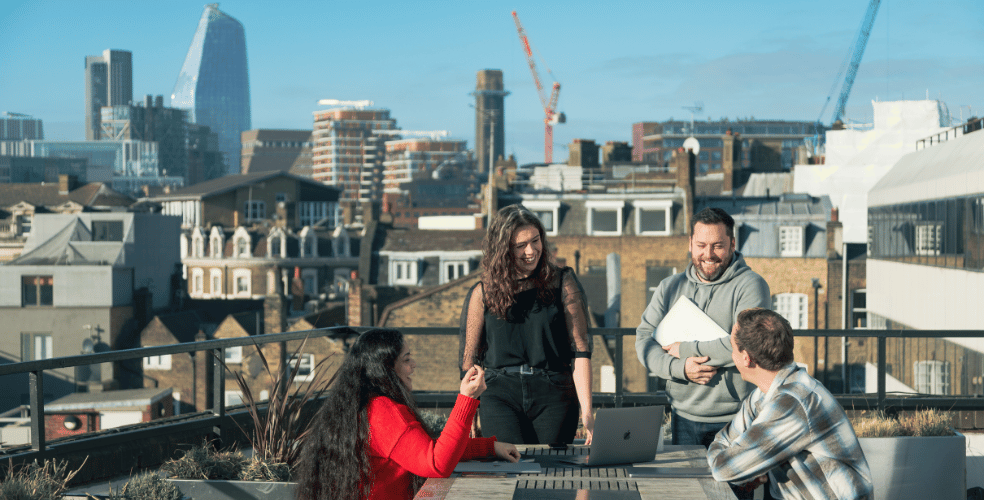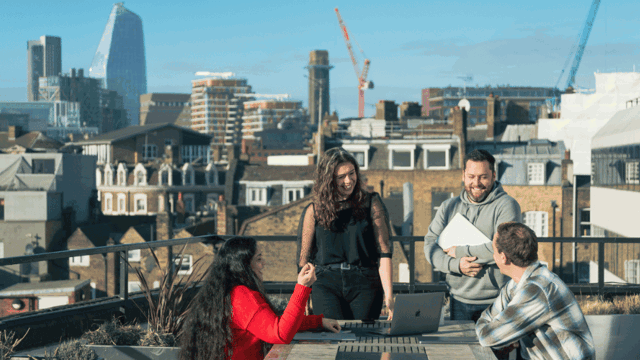The climate emergency is as much a governance challenge as it is a technological, environmental or economic one. Governance is about when decisions can and should be made, who should get to decide, and how the benefits and costs of taking action should be shared across society.
21st-century governance must move beyond the idea of single organisations acting alone with fixed plans, inflexibly delivered. The scale, nature and severity of the climate and ecological emergency calls on us all to work collectively within our local places and across our wider governance and institutional systems.
Governance challenges in the climate era
For society to be able to respond effectively in a new climate era, we need governance arrangements that are designed to cope with a number of fundamental challenges. What are the main governance challenges?
Complexity
Climate change is a challenge that touches different sectors, societal interests and scales of governance. Our traditional hierarchical structures were not designed for such a challenge. For those in positions of power or influence, navigating the interconnected elements of the environment, society and the economy can be complex.
Uncertainty
Despite rapid advancements in our understanding of the climate, there’s still uncertainty around how to respond. We don’t know what the future will look like, or if the actions we’re taking now will work. Combined with the fact that individual and collective behaviours will affect the outcome, we’re shrouded in uncertainty.
Trust
The climate crisis can’t be solved by institutions, organisations or community groups working alone. The current culture of our institutions is focused too much on delivering what’s within their immediate control. It’s time to build trust and create more trusted relationships, enabling local communities to have confidence that their actions will be matched and amplified by actions happening elsewhere in government and in business.
Time horizon
Short-term political cycles are not designed to address long-term challenges and there’s an inevitable gap between action and results. To avoid catastrophic climate breakdown we know there are less than 10 years to halve global emissions which, if we stick to annual budget cycles, is only 10 points of reflection to pause, reflect and change course.
Governance principles for the climate era
So how can our institutions and local communities govern and manage together to respond to the climate and ecological emergency effectively? We’re sharing our ideas below, inviting you to help us develop and grow these principles.
Wider understanding to see the whole picture
Begin by building a shared understanding of the issues and challenges, bringing together organisations and communities with different perspectives, interests and backgrounds. Resisting the temptation to jump to previously used solutions and instead get comfortable with developing a wider understanding.
The “whole picture” of the climate and environmental emergency can feel overwhelming. A great way to help it seem tangible is through drawing and storytelling. Imagery has great power in helping us break down challenges so they’re easier to understand.
Develop compelling shared visions for our places
The climate emergency narrative we often hear focuses on what we‘ll lose, rather than what’s possible. Instead, we need to develop a shared, realistic vision for a brighter and more liveable future to help generate commitment within places and across their communities to common goals.
“Net-zero emissions” cannot be the end goal: a focus must also be on creating a fair, safe and thriving society and environment that includes more immediate challenges from secure jobs and good homes to addressing inequality. Equally, visions and actions should be relevant to a place; building on the assets and strengths of the community, local business and the built and natural environment but also acknowledging local risks, weaknesses and barriers.
Think big, start small
In the climate era, ‘good’ strategy will not be enough. Good governance will create the conditions for action, implementing ideas and making a start. We can start doing some of the more tangible or easier things to build momentum and show others that change is possible.
It’s only through action that our institutions can rebuild and strengthen relationships with communities, building trust. Publically celebrating these successes will allow our local places to sustain their changes.
The growing popularity of Library of Things is a great example of this, where citizens can lease tools from a public “library” instead of buying their own. The Library is a visible and practical example of local governments working alongside their communities and demonstrates what a more circular economy could look and feel like in practice.
Be open to failure
In the face of complexity and uncertainty, it’s okay and indeed necessary to fail. Embracing a mindset of conscious experimentation and preparation to pivot supports us as we continue to learn.
Rather than relying on annual budget cycles, institutions can shorten feedback loops and choose timescales appropriate to their individual action. Investing in monitoring, learning and evaluation will help identify early signs of progress and where to change and adapt.
Work collaboratively and learn socially
Local governments need to work alongside citizens to design and deliver changes, going beyond the traditional models of ‘consultation’ to truly devolving power, pooling resources and working collaboratively. Sharing perspectives and experiences will lead to social learning and will help develop a common understanding.
Amplify and build on what works
We propose that local government leaders and champions must find out what already exists in their local places. They should use their power to amplify the effectiveness of existing community actions, whether through providing funding, expertise or space. By facilitating connections, and sharing benefits generously, institutions can make the best use of the assets of their community.
Everyone Everyday is a five-year project in Barking & Dagenham, a series of shop fronts where residents can get support from a project designer to bring an idea for their neighbourhood to life. By building on community energy and passion, Barking & Dagenham is supporting people to participate and building cohesion and social resilience.
Be transparent and work in the open
By working in the open, sharing work in progress and inviting dialogue, local government can work more effectively with their communities. Working in this way can also help our institutions learn from the challenges we’ve faced, inviting collaboration and different perspectives as they develop solutions.
Wales is the only country in the world where sustainable development is baked into legislation and all public institutions have responsibility for the wellbeing of future generations. As Future Generations Commissioner, Sophie Howe is responsible for holding the public sector to account, publishing an open report every year and pushing the sector to make bolder changes.
Just the start
Good governance in the climate era is about creating the conditions for great things to happen, enabling others to act and continuous learning, evaluation and sharing. With this starter for guiding principles, we can work together in new ways to build a vision for change and respond to the challenges of the climate era.

Place and infrastructure: thinking about digital transformation in a new way
Digital transformation is more than gadgets or sensors—it's about the intentional and adaptive design of policy, planning and project delivery to achieve user and economic outcomes.
Read moreOur recent insights

Place and infrastructure: thinking about digital transformation in a new way
Digital transformation is more than gadgets or sensors—it's about the intentional and adaptive design of policy, planning and project delivery to achieve user and economic outcomes.
Read more
Modernising to meet a 21st century vision
Trafford council already has many change projects underway across different services but an overarching question remained, “how do we know where to start to manage change across the whole organisation?”
Read more

